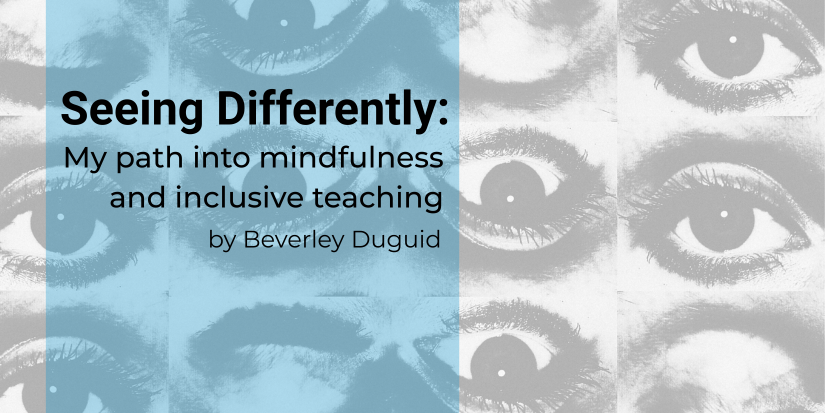
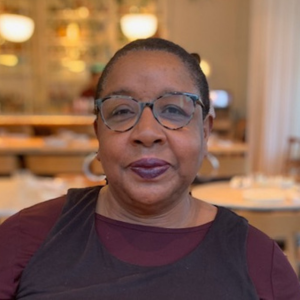
Hello, my name is Beverley. In 2022, I participated in the Mindfulness Network’s first Teacher Training Course (TTC)*, prioritising Black, African, Asian, and Caribbean (BAAC) people, tutored by Pauline Gibbs and Bridgette O’Neill. I am also a writer and feel a strong pull towards documenting my experiences of practising and teaching mindfulness. This fact prompted me to write this article.
The reasons I wanted to develop my mindfulness practice were closely tied to my eye condition, both for teaching others and for my own self-care. I was diagnosed with glaucoma in 2009, which has eventually led to partial sight in both eyes. I learnt to meditate in the Buddhist tradition. Still, as soon as I engaged with mindfulness, I found that the practice not just helped me to positively chip away at the chronic headaches and light sensitivity, which flared up because of glaucoma. Still, I was drawn to its non-judgmental and compassionate approach.
In 2020, with the help of a local initiative (in the Royal Borough of Kensington and Chelsea- RBKC). I set up an alternative health business prioritising marginalised groups, but specifically blind and partially sighted people. My company went live as we went into lockdown. Any idea I had of training to teach was dashed as I reconfigured the business format and delayed many of my plans. It also seems counterintuitive, but although I had previously taken two mindfulness courses (MBSR and MfH), had experience of leading groups and teaching, living with the prospect of blindness left me with a lot of self-doubt and decreased confidence. I wondered if I was doing the right thing.
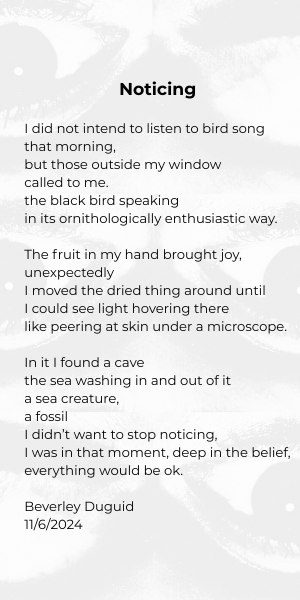
Nevertheless, I was still determined to continue teaching mindfulness in some form. After careful consideration, I developed Mindful Poetry for blind and partially sighted people (BPS), which I taught in 2021 following a small grant from RBKC. Approximately 2 million people in the UK live with sight loss, where their eye condition has a significant impact on their lives. I created this 8-week course based on the MBSR format and specifically for those with sight loss because of my lived experience, and, in addition, evidence shows that people with BPS live with high rates of depression, which can lead to social exclusion and poor mental health. Students reported that they were often excluded from creative writing classes due to their eye conditions, so they did not even apply.
By the time I applied for the TTC*, I was feeling more confident, and the course was to give me that extra push I needed to continue building my practice. As I delivered meditations with my colleagues, I not only realised my strengths but also where I needed to develop skills or improve my practice. Importantly, the TTC made me realise how vital it is to feel safe in a mindfulness setting. It was able to really help me to lean into those microaggressions and prejudice I experienced when I was the only black woman on a course. This time, I wasn’t alone, and seeing myself reflected in this space was incredibly nurturing and rewarding. I am constantly embedding ‘safety’ as a concept into my teaching practice with those with disabilities and different ethnicities.
For example, I set out to invent something that would take into consideration everyone’s method of communication and help alleviate those feelings of anxiety, so students could concentrate on their well-being and have a lower likelihood of falling into the trap of social isolation or exclusion. At the start of a mindful poetry course, we spend time discussing everyone’s accessibility needs in detail, so students can participate comfortably in class exercises. For example, I might ask, ‘Do you use dictation, pen and paper, touch typing, memory, or record answers on a device?’. Once these methods are dealt with, students participate on an even playing field. This process was challenging, but mindfulness taught me to pace myself, allowing me to still take the time to be inclusive and compassionate at the same time. Concurrently, I was still adjusting to my own way of working – using assistive technology to magnify my screen or voice over to listen to documents.
After the TTC*, I went on to teach in the community in North Kensington through the Health Equalities project (2023), during which I was also awarded a grant to teach mindful poetry/mindfulness throughout August 2023. Currently, I am developing my own client base, and I also give mindfulness morning practice to colleagues at work. Mindfulness has also galvanised my poetic voice. After many years of keeping my poems private and unshared, I am now sharing them with mindfulness colleagues and groups. I’ve selected one, pictured.
Find out more: https://linktr.ee/the_mindful_poet
*The TTC Beverley referred to is now known as Essentials, part of the Training Pathway in partnership with Bangor University.
Our next Essentials course will run from October 23 to November 2, 2025. Find out more and register here.
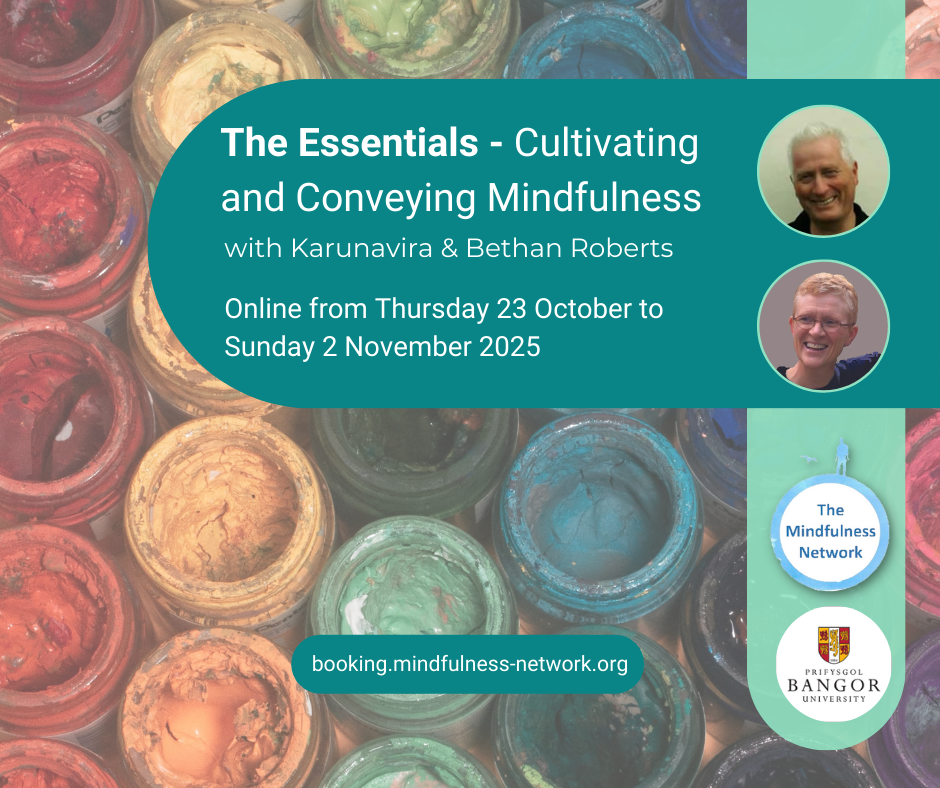
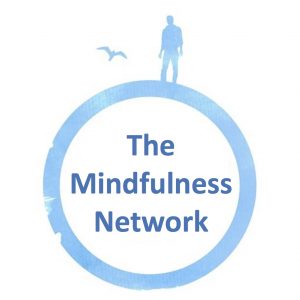




One comment on “Seeing Differently: My path into mindfulness and inclusive teaching by Beverly Duguid”
Susan Whyman
October 3, 2025 at 8:09 pmHello Beverley
YOU ARE A STAR!!!!! I hope you remember me. I’m Susan Whyman now in New Jersey and missing all my London friends.
I wanted to tell you how much I liked your poem called Noticing.
Your life story has inspired me. I know you will remain true to your calling.
With admiration, Susan